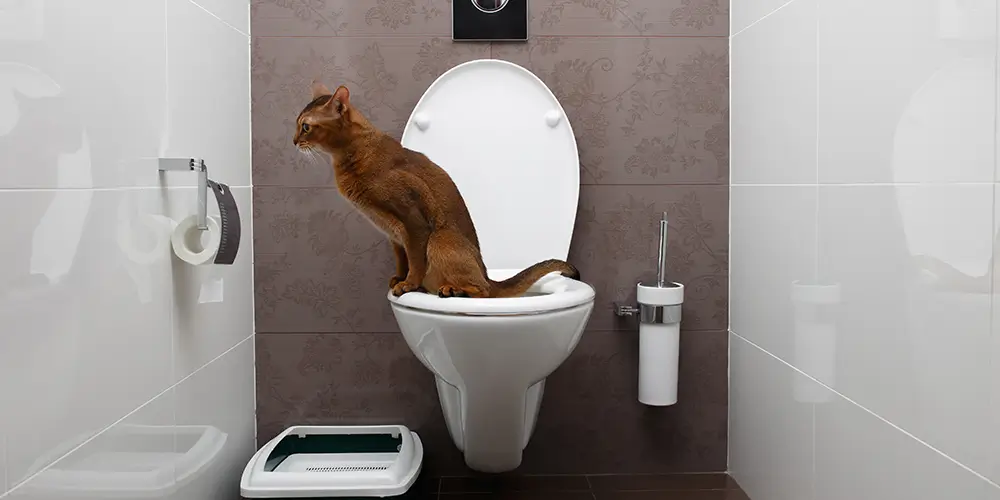Toilet paper, yes.
Johnny’s toy soldiers, no.
There are some things you should never send down the drain.
Now, we know what you’re thinking: you outgrew the stage of flushing non-flushable items when you were still a toddler. You use common sense, so you shouldn’t have issues. But there are many items you might be flushing today that you really shouldn’t.
Most are less obvious problems than soldiers, but they can produce equally bad results.
Let’s review a list of 10 things you should never flush.
1. Bathroom Wipes
Whether for you or your baby, these moist towelettes aren’t meant to be flushed. Yes, there are versions that advertise themselves as safe for flushing, but the truth is that most don’t degrade quickly enough to avoid problems.
Many plumbers report that these have become the number one culprit of clogged pipes, and some cities are even suing manufacturers of these wipes for the damage they’re causing to city sewer systems.
2. Cotton Balls & Cotton Swabs
What’s the issue here? These items are small. And they’re often made by toilet paper manufacturers, making it easy for you to feel good about flushing them.
However, they tend to get stuck in the bends of bends, and since they don’t degrade like toilet paper, they simply accumulate and create clogs. Toss them in a wastebasket instead.
3. Medication
What to do with old meds?
You can’t use them, you can’t sell them, plus old painkillers may be a temptation for thieves. So many people dump their medications down the toilet, causing major problems.
Medications can contaminate groundwater, injure wildlife, and kill healthy bacteria that keep our ecosystem in balance.
Please, dispose of your medications at a safe location (i.e., a hospital or police station). Go to www.takebackyourmeds.org to find a location near you.
4. Dental Floss
It’s easy to see flushing dental floss as harmless because floss takes up no space at all.
However, it can create clumps, just like hair, clogging drains. It can also wrap itself around other debris in the pipes, creating large blockages.
5. Cat Litter
We’ve all seen cat litter that claims to be flushable. But no matter what the box claims, don’t flush it.
Sand and clay are the two primary materials in the most popular brands, and they’re brutal for your pipes. Clumping cat litter will form a dam in your pipes and be nearly impossible to remove.
Leave the toilet for human waste, unless you can train mittens how to use the john.
6. Condoms
Condoms are made to withstand a lot of action (bully for you). Their synthetic material won’t break down in your pipes. They can easily clog your toilet and create problems for your entire plumbing system, especially if you’ve had a busy month.
Dispose of condoms in a trash bin instead, where they can serve as a monument to your manhood.
7. Paper Towels & Tissues
Paper towels and tissues look similar to toilet paper, but they’re designed differently.
They don’t break down quickly like toilet paper, so flushing them can cause major clogs in your pipes. Use them for their intended purpose — cleaning up messes. They belong in the trash, not your toilet.
8. Tampons & Feminine Pads
These products absorb moisture. When they come into contact with water, they expand like blowfish. So, imagine what they do when you flush them down the drain.
Tampons and pads can easily clog your pipes. They also tend to clump together with other items on this list, causing major blockages.
9. Hair
It seems like a logical move. You’ve just cleaned a hair bush or picked up loose strands from the shower drain, and the toilet is right there.
But hair doesn’t break down in water. Instead, it snarls and joins forces with other debris in your pipes, forming large, stubborn clogs. Always dispose of hair in the trash.
10. Cooking Grease or Oil
It may be convenient to pour liquid grease or oil down the toilet, but this is a serious mistake. Once cooled, fats solidify, sticking to the inner walls of your pipes.
This can lead to serious plumbing problems and even undermine the municipal sewer system. Pour grease into a disposable container and throw it in the trash instead.
11. Chewing Gum
Chewing gum won’t dissolve in water (duh!). Once flushed, it can stick to your pipes, forming a sticky, glue-like obstruction that catches other debris.
Always dispose of gum in the trash to keep your pipes running smoothly.
12. Cigarette Butts
Cigarette butts are made of fibers and chemicals that won’t break down in water. They can swell, clog pipes, and release toxins into the water supply, causing environmental harm.
Instead, extinguish cigarette butts completely and throw them in a trash can.
13. Food & Food Scraps
Who takes food into the bathroom? Ewww!
Yet, it happens. Any food particles that don’t get caught in the drain trap are washed into your pipes, where they can rot and cause unpleasant odors, attract pests, and eventually clog your pipes.
So, avoid dumping food down the toilet. Keep your dumps proper instead.
FAQs: Things You Should Never Flush
Q: Can I really not flush any sort of wipes down the toilet?
Unfortunately, no. Even if they claim to be flushable, most wipes don’t break down quickly enough and can cause major clogs in pipes.
Q: Are there any exceptions to this list?
Generally, if an item doesn’t break down quickly in water or can cause blockages, it’s not safe to flush.
Q: What should I do with leftover grease or oil from cooking?
Never pour grease or oil down the toilet (or sink). Instead, allow it to cool, pour it into a disposable container, and discard it in the trash. This prevents solidification in pipes and protects your plumbing system.
Q: Are paper towels really that damaging to pipes?
Yes, they are. Paper towels are designed to be absorbent and durable, meaning they don’t dissolve easily in water. This makes them prone to clogging pipes.
Q: Are diapers safe to flush if they have biodegradable labels?
No, even biodegradable diapers aren’t safe to flush. They’re too large and don’t break down fast enough, leading to severe blockages in plumbing systems.
Q: Is it okay to flush tissues used for makeup removal?
Makeup removal tissues often contain oils, lotions, or synthetic fibers that prevent them from breaking down in water. These materials can gather and clog your pipes. Always discard them in a trash bin.
Q: Can I flush pet waste, such as dog poop, down the toilet?
Pet waste can introduce harmful parasites like Toxoplasma gondii into the water system and potentially harm aquatic ecosystems. Instead, dispose of pet waste in sealed bags in the trash or explore local composting options if available.
Q: Are there any other household cleaning products I should avoid flushing?
You should never flush sponges, cleaning pads, or even small debris from cleaning tools, such as scrub bristles. These items aren’t designed to dissolve in water.


